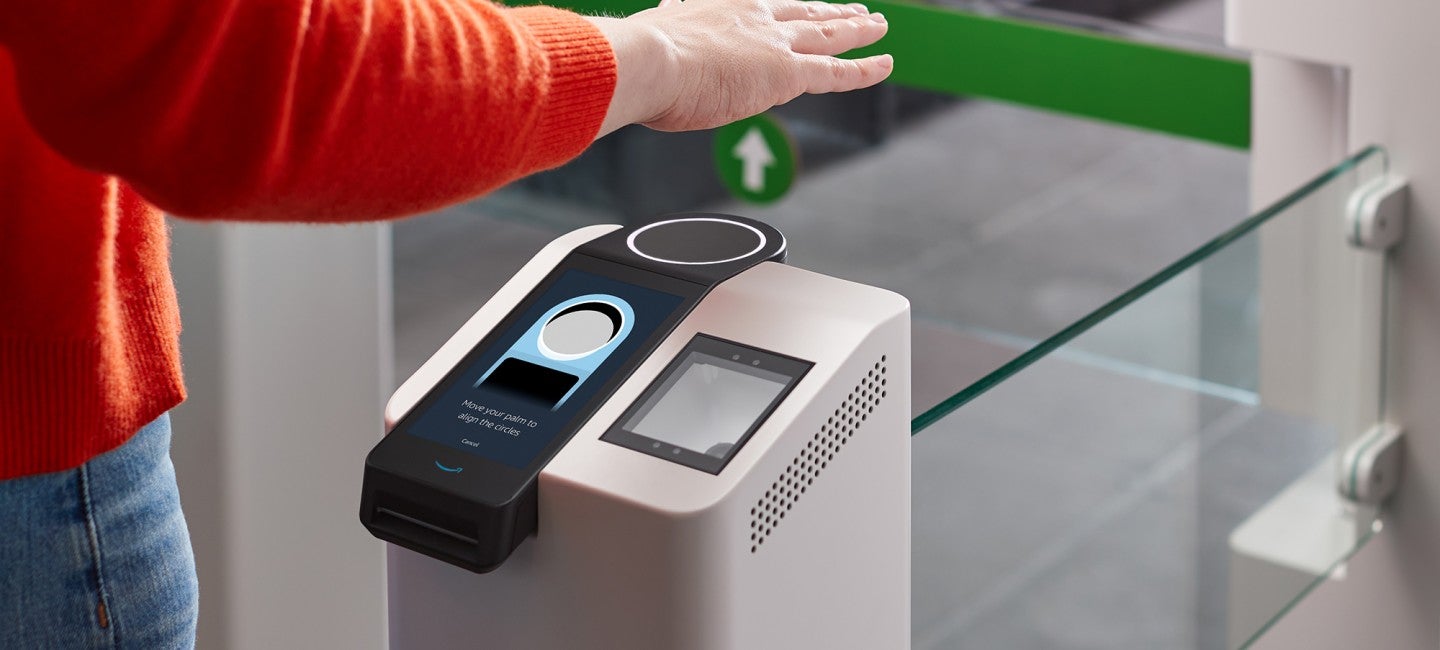Amazon wants you to scan your hand to pay for groceries, watch sports, and enter your office
It will first appear in Amazon’s Seattle Go stores

Your support helps us to tell the story
From reproductive rights to climate change to Big Tech, The Independent is on the ground when the story is developing. Whether it's investigating the financials of Elon Musk's pro-Trump PAC or producing our latest documentary, 'The A Word', which shines a light on the American women fighting for reproductive rights, we know how important it is to parse out the facts from the messaging.
At such a critical moment in US history, we need reporters on the ground. Your donation allows us to keep sending journalists to speak to both sides of the story.
The Independent is trusted by Americans across the entire political spectrum. And unlike many other quality news outlets, we choose not to lock Americans out of our reporting and analysis with paywalls. We believe quality journalism should be available to everyone, paid for by those who can afford it.
Your support makes all the difference.Amazon has announced its own palm recognition technology that customers will be able to use in its stores.
Amazon One, as the software is called, is made to be a more efficient way to access activities – such as entering sports venues, work, or loyalty card services.
For the moment, Amazon One will only be available in Amazon’s Go stores; the two which will support Amazon One are both in Seattle.
It will be “added to the store’s entry gate as a convenient choice for customers to use to enter the store to shop”, Amazon says.
Amazon plans to offer the service to third-parties, including retailers and stadiums, as well as office buildings.
Users will not need an Amazon account to scan their hands, although the services can be linked together.
Images are apparently never saved on the device; instead they are encrypted and sent to a custom-built “secure area” in the cloud.
Customers can delete their biometric data through a portal on Amazon’s website.
“We believe customers should always be in complete control of when and where they use the service, and we designed Amazon One with this in mind”, the company says.
Following the Black Lives Matter protests, Amazon put a moratorium on the recognition services it develops and reportedly pitches to America’s Immigration and Customs Enforcement agency because it believes government need greater regulation over the ethical use of facial recognition technology.
Palm recognition, however, “is considered more private than some biometric alternatives because you can’t determine a person’s identity by looking at an image of their palm”, Amazon says.
“The service is designed to be highly secure and uses custom-built algorithms and hardware to create a person’s unique palm signature” it says.
Amazon also chose a palm reader because it is contactless, which it says customers will “appreciate” in light of the current coronavirus pandemic.
Join our commenting forum
Join thought-provoking conversations, follow other Independent readers and see their replies
Comments